- Home
- Kathryn Lasky
Blood Secret Page 15
Blood Secret Read online
Page 15
So why am I thinking of all this now. Jerusalem, my dear Jerusalem, she died so long ago, nearly thirty-five years ago with the birth of her child, Estrella. Yes, that is what she named her, after her little imaginary friend, Estrellita. And now I am an old lady and Estrella has married Carlos de Gusmao. He is a successful merchant. He deals mostly in tools for miners. It is a good business. Everyone wants to dig for gold here. He makes a nice living. They keep me well. This is how wealthy I am: I direct others now to make the bread. Although sometimes I do it myself, and yes, I still throw in the little piece of dough first for the Temple in Jerusalem. But now I also do it for Huitzilopochtli. He is my good-luck god. Without him, I am not sure if I would have so successfully left Doña Dora, or if Jerusalem would have found such a nice husband; and though God took her, look what he left for me in my old age. Estrella. Estrella and Carlos are both secret Jews here in Mexico City, and tonight they come to me and they ask for that old mezuzah. So that is why I think all these thoughts from long ago. They want to put it someplace secret in the house, even if it cannot be on their front door. And I say no, let’s get ourselves a nice Madonna. Go, Carlos, to the Calle des Artisans and have the man named Pedro make you a ceramic Madonna. I will show you how to put a mezuzah in her foot, or perhaps the skirt or her dress, and then you can kiss her every time you enter the courtyard and we shall all be safe.
They think I am a little crazy, of course, because I still throw a piece of the dough in for the old Temple in Jerusalem and one as well for my Aztec god, but they listen. You see, the Inquisition has come here to Mexico. Everyone said it never would, but it did. Oh, my goodness, did it come! Almost to our old doorstep in Tampico. So many who had come there to settle were in fact secret Jews. Not the awful Dora, but here is perhaps a trick worse than mine that the fates played on that woman—her husband, Julio, was! The limpieza wouldn’t have helped him. The Holy Office paid no attention to such certificates. There were hundreds, maybe thousands of arrests and burnings—auto-da-fés, as they call them. So many that the province once called Nuevo León was renamed El Quarto Tragico, the Tragic Square.
But Jerusalem and I and her young husband, Rodrigo Benevista, had long left and come to Mexico City. Rodrigo’s grandfather was rumored to be a rabbi in the old world, but Rodrigo’s brother had been sent to study to be a Catholic priest and had just come to Mexico City. That is why we came here. Many years ago when we first arrived, things weren’t so bad here in Mexico City. The Holy Office of the Inquisition mostly went after bigamists and blasphemers. But now they go after Jews. That is why I am frightened for Estrella and Carlos. It is this Jewish thing. They want to follow the laws of Moses. There are many Jews here in Mexico City. They call them Marranos. They go to their Friday night Sabbaths in the cellars of their friends. Each time I worry so. I cannot fall asleep until they return. And now especially with the baby coming. If it is a girl, they want to name her Jerusalem de Luna. A nice long name, Jerusalem de Luna Perez de Gusmao.
A few months later
Estrella of course had to wait until our two servants left for the day. One was so old she would not have noticed, but the other was young with sharp eyes. And now it was more important than ever not to arouse their suspicions. Too many people were being arrested. I was nervous. We had heard that as many as fifty had been carted off in the last month, and these were not bigamists or blasphemers or brigands. No, they were people suspected of being secret Jews because they had been reported by a neighbor or more often a servant for such activities as wearing fancier clothes on Saturdays, cleaning their houses on Fridays, or most telling of all, lighting candles on Fridays when it was still early and not yet dark—all signs of observing the Jewish Sabbath. Another sign of the secret Jew was if a fire was not lit after sunset on Friday and kept cold all day Saturday, for the laws of Moses did indeed forbid such kindling. Now the Holy Office had posted an annuncio listing such suspicious activities. Handsome rewards were given for reporting people.
So Estrella and Carlos pieced their little Sabbaths together as best they could. I kept watch for them sometimes and even lit the fires. As I told Estrella and Carlos, I am not really a Jew, so there was no problem for me to light the stove after the Sabbath began. It has been rumored that the tower that was built new for the church was so officers of the Inquisition and their spies could go up on Fridays and Saturdays to see from which houses no smoke rose. Those smokeless houses were immediately suspected of being the homes of secret Jews.
For Estrella, I admit, it must be hard to tell what God I follow. Sometimes within one sentence I might invoke the name of three gods—Adonai, the Hebrew name for the one God; Huitzilopochtli, for that’s my own private Aztec patron saint; and sometimes I have even been known to call upon the Blessed Virgin, who has after all protected the mezuzah for me all those years, starting when Estrella’s mother and I had lived in Tampico. Carlos sure did squirm when I had suggested that if he wanted to keep a mezuzah here, he put it into a Virgin statue.
But I understood. Carlos and Estrella were trying so hard to live by the laws of Moses. But all they really had to go by were fragments. That’s the way it is with most of the secret Jews around here. It has been so long since they have openly practiced their religion that only a few knew the ways, the prayers. All they have are bits and pieces now. Bits and pieces. They do know the Shema. And to think they had learned it because of the letter in the trunk that had come from her great-grandfather Luis, that trunk that I dragged all the way from the Yucatán to Tampico to Mexico City. The same trunk that had the mezuzah and God knows what else in it—pieces of lace, a tarnished medal of some sort. Oh yes, and now the baby cap that little Jerusalem has already outgrown. Tonight is their night to host the Sabbath. Not many will come. That would be too dangerous—just three or four, and they will of course go to the cellar.
The sun is setting now. Within minutes it will disappear. “Abuela!”
“Sí, Estrella.” Time for me to go hold the baby. It’s this way every Friday night ever since Estrella has discovered the ritual of welcoming the Sabbath. She learned about this from her friend Ruth. It was Ruth who had told her that one welcomed the Sabbath like a new bride on her wedding day. In the trunk Estrella has found several pieces of lace. Some were old and tattered, but there was one that although yellow with age looked like a fine net in which six butterflies had been caught. Estrella for some reason loves the old thing. She said that she felt drawn to it—a kinship with the woman who had worn it. Sometimes I think that maybe it had belonged to my mother-in-law, the one that had been called Esther.
The baby is asleep when Estrella places her in my arms. She is a beautiful child. And so is the mother. I watch as she puts the veil on her head and takes the two candles and the flint box and begins to walk down the earthen steps to the cellar. With each step down the stairs, I know that Estrella’s spirits rise. She told me once that it is almost as if she can feel the delicate wings of the butterflies stirring the air around her head. For these brief moments she is indeed a radiant bride.
I am thinking about her striking the flint box to light the candles. Before the baby came, I would sometimes go down and watch this Sabbath ritual. She must be about to light the second one now. I like imagining the little lick of flame. It reminds me of León, for some reason. It connects me with him. What is that thumping outside my door? Why is my door splitting open? I open my mouth to ask who’s there and only a terrible scream breaks from my lungs. It is the officers of the Holy Inquisition. I imagine those candles below in the cellar, the sizzle of the flame grabbing the wick, and then I know my entire world is about to change; the world of my Estrella is set afire.
Six months later
So this is the second time I have stolen in my life. The first was the Limpieza de Sangre and now I steal my own blood back. Yes, Estrella sits like a stone beside me on the wagon cart. She wears a nun’s habit and so do I. She hears nothing. She speaks not a word, and her eyes are too large for her head becau
se they have indeed seen too much. She is filled up with horror after six months in the dungeons of the Holy Office of the Inquisition. They tortured her every day. They put her on the rack and they would stretch and stretch her. Now her one arm hangs loose out of its socket. She cannot hold her own baby. They brought her from the dungeon on the day of the auto-da-fé when they burned Carlos. They put her right up front so she could see him burn. I was there too, in the crowd. It is easy for an old Indian woman to blend in. You see, when they came to the house that evening, they barely paid me heed. They assumed I was a slave—so dark with that red tint in my skin, rocking a baby. As soon as I saw what was happening, I knew what I must do—play the ignorant servant. And Estrella then seemed to know too. She did not cry “Abuela” as they dragged her from the cellar. They had already arrested Carlos. I disappeared into the streets with the baby. I had money. I have always been good with money. They took the house. They took the business. How would the Holy Office exist if it wasn’t from the treasures they plundered from the Jews? The bigamists and the blasphemers and the thieves give them nothing. That is why they turned on the Jews. They did not take the trunk, however. They opened it, rooted through it with their filthy hands, and found nothing of value. The veil of butterflies, however, was lost. They threw it in the fire.
It took me several days to find out where they had taken Estrella. The Inquisition is so secretive. They don’t use the regular prisons. No, they have dungeons under certain buildings. But I found out. And you can bet that the Holy Office is not the only ones with spies. There is an entire network of spies to help those inside and, yes, a black market too. You have to bribe guards to take messages in and bring word out, to take a loaf of bread, a rag for a woman’s monthlies, whatever. I went back to baking. Yes, I’m an old lady, but anger brought me new energy. Energy I never knew I had. And I had one goal: get Estrella out of prison. Make a deal with the nuns and then steal her from their convent. I had money that León had left for me; I had used only part of it to go to Tampico. And then the money from my baking business. I had always saved it out, separate from Carlos’s. I didn’t even keep very much of it in the house on Cortés Street. I had other places. I started baking again when Estrella and Carlos were arrested. I made it a point to bake for the Dominican friars—the dogs of God, as some call them. I watched them very carefully. I knew that some of the friars indeed took bribes from secret Jews to keep the Holy Office from these Jews’ doors. I just had to figure out which ones. It was through a miner who had often bought tools from Carlos that I found out about one Friar Pascal. He liked gold, and since he could not exactly leave his order to go off and mine for gold, he found other ways to collect it. He was leaning heavily on Simon Levi. So I started watching. I wanted to catch him collecting the gold, then I could threaten to tell his superior and this might be enough to boot him out to the loneliest province. But I actually caught him at something better: He had a mistress and two children!
So now I confronted this so-called holy man, man of God. And this was the second time I made a deal with friars. The first was at the baptism of Jerusalem, so I could sell my bread. But now I am getting back my granddaughter, and once again it has nothing to do with what is called religion. It’s a deal, that’s all. There was nothing the friar could do for Carlos. Carlos would burn, but he could save Estrella if she agreed to be baptized and go to the nuns of Sancta Cordera. Fine. It’s a deal, and to myself I think this is very good. Sancta Cordera is not far from the road north—north to the country known as New Mexico—and when the time is right, I shall steal back my own granddaughter.
I stole her this morning with the help of the miner. She was out in the convent’s field picking the corn. She can only use her one hand, of course, so she is quite slow. The other nuns leave her alone because she never talks and just stares, but I watch from the edge of a grove of trees. I had a friend sew me a nun’s habit. It is so simple. I begin working in the field near to Estrella, because there are fifteen or so other nuns out there and they do not notice me. I edge my way over to Estrella. I begin working beside her. She pays no attention. It is as if the very air around her has turned to glass and she is sealed off. She is neither living nor dead—but apart and far away. Finally I take the mezuzah from deep within the folds of my gown. I take her good arm and whisper to her, “Look, look, this is what your Carlos died for. Did he not say the Shema as he burned? There is your child, your baby, Jerusalem, in a cart waiting to be taught.”
We don’t have a lot of time. The other sisters are drawing nearer as they work the rows of corn. If I could only remember the words, the words, but they have slipped from my mind—the words of Deuteronomy. Then suddenly the wind stirs, huge drafts of air churn overhead, and I see the nuns all stopping in their work to look up. “Águila! Águila!” The nuns are all crying out and they are ready to cower, for indeed the eagle starts to swoop down on them. Its talons extended, its craw opened in a terrible screech. It is my Huitzilopochtli! And with him come the words of the passage: “And these words which I command you this day shall be on your heart and you shall inscribe them on the doorpost of your house.”
And while those stupid nuns are squealing like stuck pigs, I begin to whisper the words to Estrella. And although her eyes remain large, she takes my hand and I lead her into the grove where the cart and her baby wait.
For two days now we have been traveling and still she sits like a stone and says nothing. She barely moves except to sometimes raise her good arm and rub the place on her head where they poured the holy water. I try to talk to her a little bit. I don’t push. I’m not a talky sort myself. But I try to tell her when she pats her head, “Don’t mind, Estrella…what’s a little holy water to a Jew? You are a real Jew like your husband and your father and your grandfather and his grandfather.”
I am not sure what I am. I am not sure if it really matters for me. But I will put the mezuzah on our doorpost; no more hiding it in the Madonna’s skirts. No, that is why we are heading north. And when we get there, I must remember my own father-in-law’s admonition to never sweep the dirt out a door on which a mezuzah is nailed. Yes, I must remember that. And I must remember to look for the eagle in this new place. I am sure it will be there. But there are no deals to be made with eagles, of that much I am sure.
New Mexico
“The last nail!” I announce loudly. “The mezuzah is up.” I look around to Estrella, but she sits numbly in the chair in a spot of sunlight that has poked in through the door. A cool breeze blows. Jerusalem, who began to take her first steps shortly after we arrived, toddles across the dusty yard to me. Tomorrow the other settlers, well, at least four, have promised to come and help me build my hornos for baking bread. “All right, Jerusalem, let’s you and me get Mama up from her chair and help her look at this—the mezuzah.”
I keep thinking maybe it will make a difference. She still has not spoken a word since I fetched her from the nuns. She still stares with her huge eyes. Even her baby cannot make her smile or blink or anything. Her arm never healed properly. Still, every night I put Jerusalem into her mama’s lap and carefully wrap Estrella’s arms around the chubby body of her daughter. I can’t give up. I just can’t. If I give up, it means they’ve won. I won’t let them win. They have destroyed too many lives. But as Jerusalem grows bigger, she grows stronger, and she gets bored being held by the mama who is not quite alive. She begins to wiggle. Estrella’s arms simply go limp.
A neighbor made a doll out of a corncob and sewed a bright dress on it for Jerusalem to play with. But little Jerusalem has no interest in dolls. Now I look over at Estrella just before I try to lead her to see the mezuzah. I am amazed. Jerusalem must have dropped the doll in her mama’s lap and Estrella is sitting with the doll. In fact, I hear a muffled humming sound deep in her throat. It is as if a lullaby has lain buried inside her. This gives me hope. Estrella holds the little corn doll all day and all night.
A month later
For weeks now Estrella has held th
e corn doll. But she rarely touches her own child and she never speaks. I think she might never speak again. I have not given up hope, but I now place my hopes in another—in Jerusalem de Luna Perez de Gusmao. This is life.
Chapter 22
“JUST IN TIME, wouldn’t you know it.” Constanza leaned toward the kitchen window and squinted. “Sister Evangelina arriving just as the first batch comes out of the oven.”
The kitchen swirled with the scent of the freshly baked hot-cross buns. Sinta and Jerry stood ready with their pastry bags to decorate them. They had been practicing on parchment paper. Constanza did not settle for a simple cross on the buns. On many she made a lily with delicately curling petals and an elegantly scrolled stem. Jerry looked at one design Constanza had just made on the paper. “We’ll never be able to do that.”
“Just stick to the crosses. They eat them either way.”

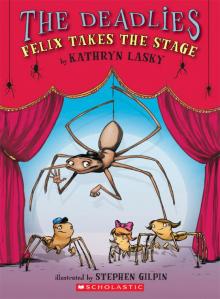 Felix Takes the Stage
Felix Takes the Stage Lucy
Lucy Lone Wolf
Lone Wolf Broken Song
Broken Song The Shattering
The Shattering The Crossing
The Crossing May
May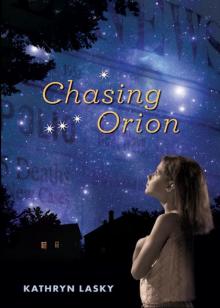 Chasing Orion
Chasing Orion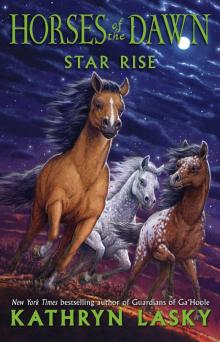 Star Rise
Star Rise The River of Wind
The River of Wind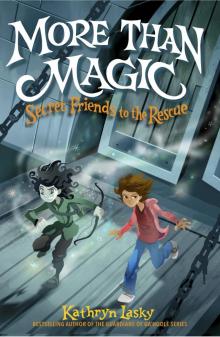 More Than Magic
More Than Magic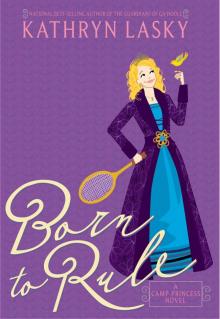 Born to Rule
Born to Rule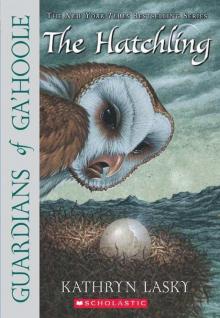 The Hatchling
The Hatchling The Rescue
The Rescue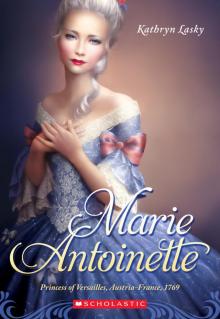 Marie Antoinette: Princess of Versailles, Austria - France, 1769
Marie Antoinette: Princess of Versailles, Austria - France, 1769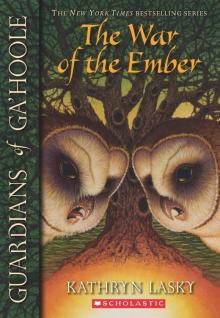 The War of the Ember
The War of the Ember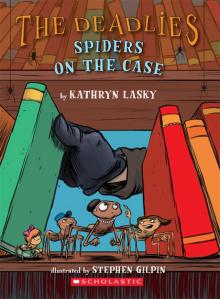 Spiders on the Case
Spiders on the Case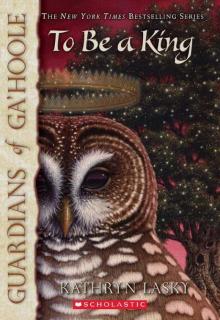 To Be a King
To Be a King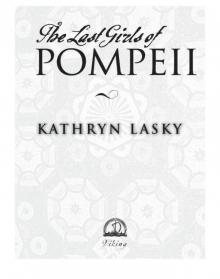 The Last Girls of Pompeii
The Last Girls of Pompeii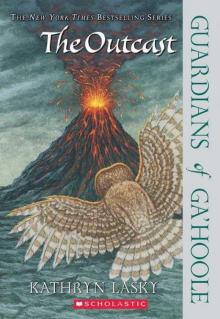 The Outcast
The Outcast Exile
Exile Night Witches
Night Witches Spirit Wolf
Spirit Wolf The Quest of the Cubs
The Quest of the Cubs Frost Wolf
Frost Wolf The Keepers of the Keys
The Keepers of the Keys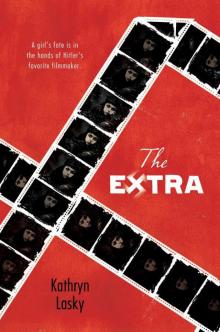 The Extra
The Extra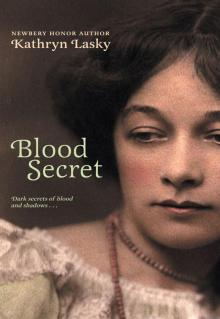 Blood Secret
Blood Secret Watch Wolf
Watch Wolf Blazing West, the Journal of Augustus Pelletier, the Lewis and Clark Expedition
Blazing West, the Journal of Augustus Pelletier, the Lewis and Clark Expedition The Capture
The Capture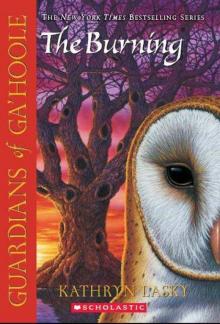 The Burning
The Burning The Journey
The Journey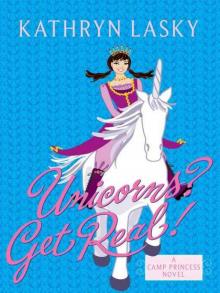 Unicorns? Get Real!
Unicorns? Get Real! The Escape
The Escape Star Wolf
Star Wolf Ashes
Ashes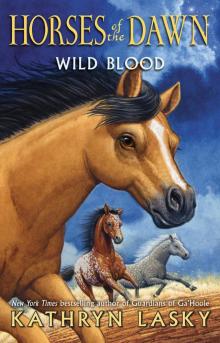 Wild Blood
Wild Blood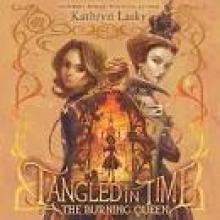 Tangled in Time 2
Tangled in Time 2 The Siege
The Siege Hannah
Hannah Elizabeth
Elizabeth A Journey to the New World
A Journey to the New World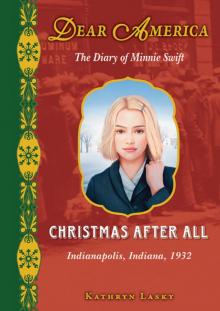 Christmas After All
Christmas After All Mary Queen of Scots
Mary Queen of Scots